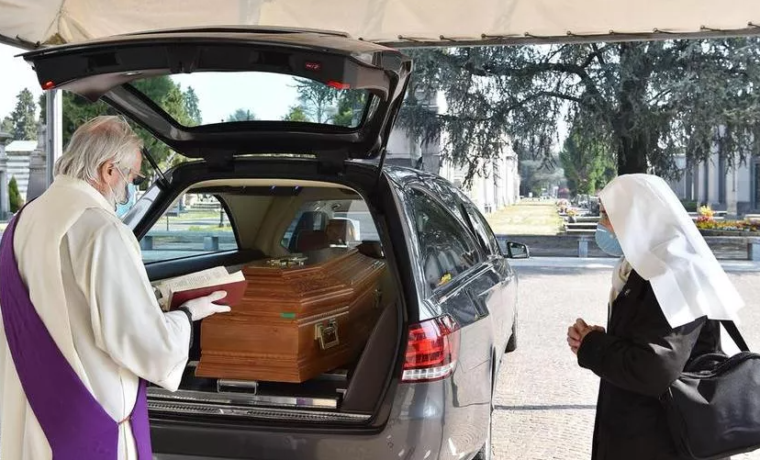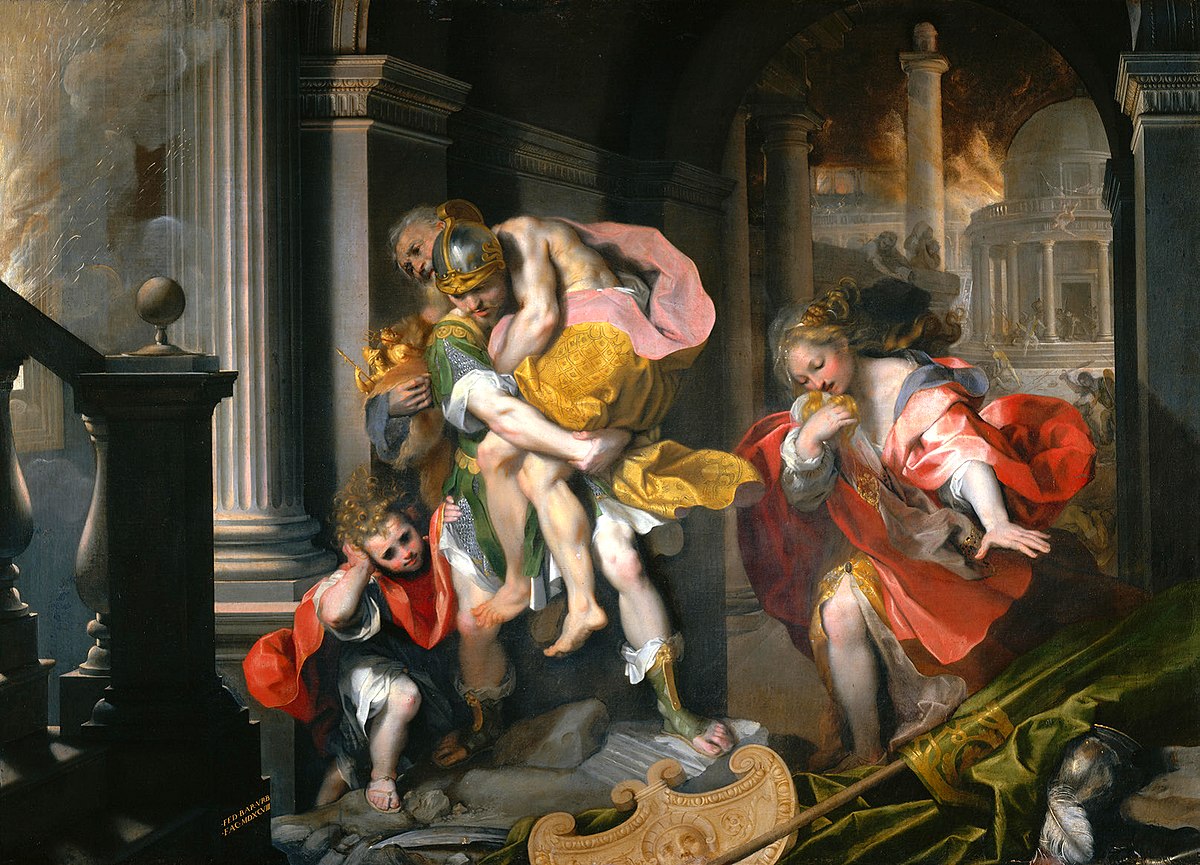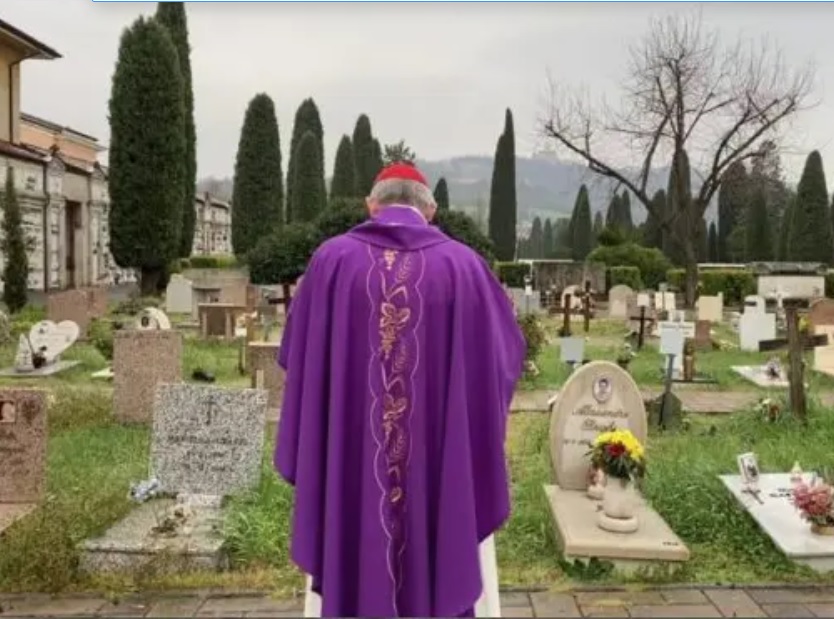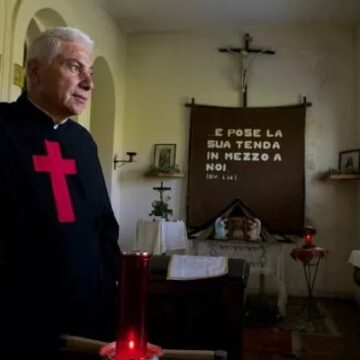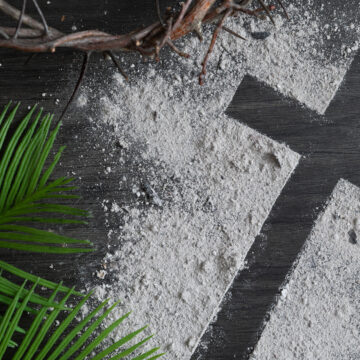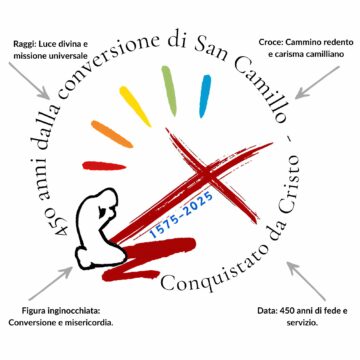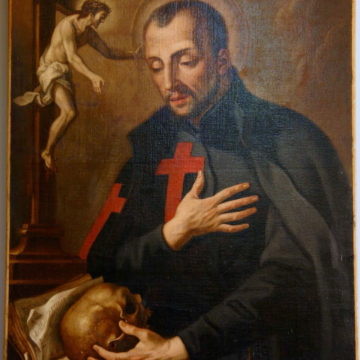Missione Salute N.5/2020 pp.14-15
By Fr. Augusto Chendi
The deaths in loneliness and the coffins with no one to watch over them, which the pandemic has forced us to witness, have eroded the most characteristic trait of our being human: pietas for the dead. All civilizations are based on pietas, and being deprived of it demands, as individuals and as a community, a serious reflection to decide how the world of tomorrow will be.
The baggage of torment and pain that have accompanied and still distinguishes the Covid-19 pandemic found an emblematic expression in the loneliness, in which hospitalization prevented even family members from saying final goodbye to their loved ones. This pandemic, with its necessary measures to contain contagions, has made that loneliness – deprived of the comfort of a farewell caress – perhaps even more bitter than death.
The other lost goodbye was for those left behind. Not being able to be close to the family member until the very last, not being able to honour him or her for the last time, not being able to say goodbye shocked us. We have thus come to know agony and death in loneliness, even to get used to it. The dead have become mere numbers in the television bulletin every night. Death has become serial, a matter of cold statistics, without names, faces and stories, anxiously scrutinized while we waited to return to normality.
A future to build
We have been in the terrible condition of not being able to exercise even compassion, because this requires a physical and material closeness that has been prevented, just as the ritual for the dead with the celebration of the funeral has been prevented. If we think that all civilizations are based on pietas, that the devotion of the dead transcends religion, because it characterizes all cultures of all ages, as it is intrinsic to our being human, it is right to take an inner time of silence, especially today when death – regardless of the health emergency – troubles us for the mere fact of increasing intolerance to the very expression of mourning.
In our culture, in fact, there is an increasing tendency to deny that death exists or has existed, in the urgency that everything resumes and moves on, as if nothing had happened. All this increases the sense of loneliness in those who remain, especially if they do not have a faith in which to find comfort, or in which to place that ideal thread of affection that allows them to hope and find themselves.
We never lacked pietas, thanks to the daring and praiseworthy gestures of doctors, nursing and auxiliary staff, and volunteers, who bravely worked to cure, console, caress and give dignity to the dead, going beyond their official duty. It is useful and necessary to ask ourselves how much pietas should become for us, as individuals and as a community, a reason for reflection to recover it or give it the right weight even when everything is over.
And it is undeniable that the death of a loved one makes us feel inescapably lonely, because it also confronts us with our own death. In this moment of sharp and luminous truth, it is not wise to flee, nor to lie at least to oneself, for our present and even more for the future to be built together. It is neither possible nor permissible for us to evade the question of pietas, which the great Russian writer Fyodor Dostoevsky, in his novel The Idiot (1869) stated as “the principal law, perhaps the only true law of human existence.”
The pietas of Aeneas
Digging into reminiscences of classical studies, it comes naturally to associate pietas with the Trojan hero Aeneas. As Virgil’s Aeneid tells us, during his flight from Troy, heedless of personal danger, Aeneas carried both his son Ascanius and his father Anchises. Thus, the ancient myth of Aeneas has become an icon of pietas, a sentiment considered fundamental, a disposition rooted in the human soul which, according to Cicero, is duty (officium) and care (cultus), capable of giving meaning to human history, of conferring solidity and continuity to the family, of preparing the future. Aeneas carries on his shoulders the elderly Anchises (history), and holds the young Ascanius (the future) by the hand. In this way, pious Aeneas manifests not only his affection for his father and son, but also acknowledges his indebtedness to them and to everyone. Even towards those who are dead, to be remembered, respected and honoured.
In that gesture, emblematic and significant for the future to be built, one recognizes those who are not indifferent to the most authentically human emotional expressions, such as weeping, discouragement, sense of loss, mourning, etc., and are not afraid of their responsibilities to ensure the possibility of continuing to live, carrying the sense of pietas and the deep sense of cultural identity that make a community worthy of being called “community of humans”.
The cult of the dead
The present time characterised by secularism, which plays between indifference to pietas for those who are no longer and the replacement of it with soulless pseudo-pietas, is forced by the pandemic to see that even the minimum rules of pietas are dissolved. Both these erase the most characteristic trait of humanity: the will and the need to accompany the dead towards the unknown. Humanity is, in a consubstantial way, linked to pietas for the dead, and to deprive it of this extreme gesture, of this indissoluble bond between the living and the dead, is to shatter what is human in us.
The image of the dead and of the survivors deprived of pietas, of that last gesture of love that the vigil and the final greeting bear witness to from the dawn of humanity, reminds us of the need for religious things and signs based on the sacredness of the body. It is ascertained that with the Neanderthal man began the burial and the cult of the dead, and with that were born the religion and the divinities, because burying a dead person presupposes that you believe in an afterlife. A cultural practice that has never stopped in any society or in any period. A practice that transcends and leaves aside religions and epochs. This is why plagues – the only ones capable of suspending this practice for a longer period of time – disrupt societies because, they interrupt one of the things that for millennia has made us what we are: humans. It is a human thing, too human, and pietas, which goes beyond good and evil, which must be reserved even for an enemy, is precisely to recognize and respect the human being in every one, both in life and in the painful and solemn sacredness of death.
A humanism open to transcendence
Pietas towards the deceased, an anthropological constitution, which has been lost due to the Covid-19 pandemic, has destabilized us both individually and collectively, precisely because it is an intrinsic characteristic of our human being and a yardstick for evaluating the civilization of peoples and nations. It challenges us for the future that lies ahead, in order to recover or restore to our culture and our signs, both secular and religious, under the sign of pietas, a humanism visited by transcendence.



